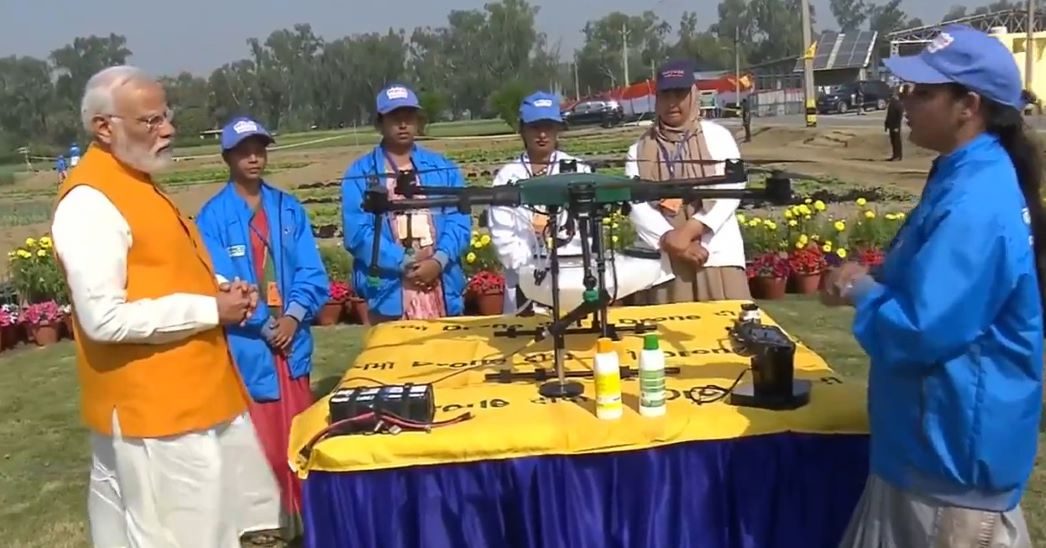The government has approved the “Namo Drone Didi” scheme under the Central Sector to provide drones to Women Self Help Groups (SHGs) as part of the DAY-NRLM initiative, with a budget of Rs 1,261 crore. Aiming to empower women and support agriculture, this scheme will offer drones to 14,500 SHGs across the country during the period 2024-2026. The drones will serve as rental services for farmers, primarily for applying liquid fertilizers and pesticides.
The Department of Agriculture & Farmers’ Welfare has issued operational guidelines, urging all stakeholders to ensure the swift and effective implementation of the scheme. Governance of the scheme will be overseen by a central Empowered Committee, consisting of officials from several departments, including Agriculture, Rural Development, Fertilizers, Civil Aviation, and Women & Child Development. Additionally, an Implementation and Monitoring Committee, led by an Additional Secretary from the Department of Rural Development, will be responsible for the strategic planning and technical guidance essential for successful execution.
Financial support forms a key component of the scheme, with an 80% subsidy, up to Rs 8 lakh, allocated to SHGs for drone purchases. The remaining amount can be financed through loans under the National Agriculture Infra Financing Facility (AIF), which offers a 3% interest subvention. SHGs also have the flexibility to seek loans through other Ministry of Rural Development programs.
The drone packages provided under the scheme come equipped with necessary accessories, including spray assemblies, carrying boxes, batteries, cameras, chargers, and measurement tools. Each package also offers additional battery sets and propellers, ensuring that the drones can cover up to 20 acres per day without interruptions. Training is integral to the scheme, with one SHG member designated as the drone pilot and another as the drone assistant. The pilot undergoes a 15-day training in drone operation, while the assistant receives training in repair and maintenance.
The scheme will be executed at the state level by Lead Fertilizer Companies (LFCs), which will collaborate with state departments, drone manufacturers, and SHG federations to ensure coordinated efforts. The LFCs will manage the procurement of drones, which will ultimately be owned by SHGs or their federations. The scheme’s implementation will be monitored to ensure that it targets areas where demand for drone services exists. Given the novelty of drone technology in agriculture, the states will provide close support to the SHGs, helping them secure business and target an area coverage of at least 2,000-2,500 acres annually.
An IT-based Management Information System (MIS), known as the Drone Portal, will be established for effective monitoring, tracking, and managing the scheme. The portal will facilitate end-to-end service delivery, fund disbursement, and real-time tracking of drone usage.
The “Namo Drone Didi” scheme is expected to create sustainable livelihood opportunities for SHGs, boosting their income while introducing advanced agricultural practices. By providing drones for agricultural services, the scheme aims to enhance crop yields and reduce operational costs for farmers, ultimately benefiting rural economies.


















































